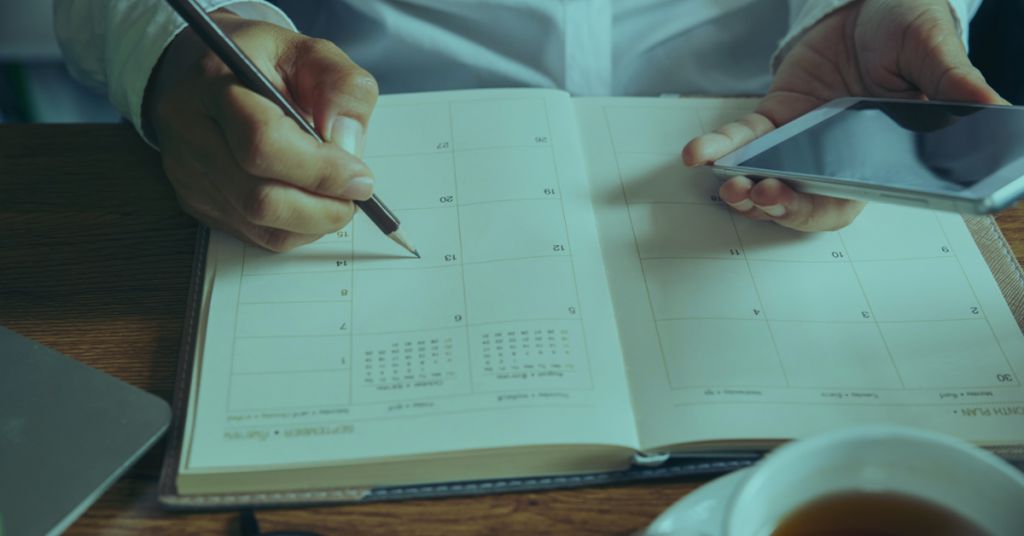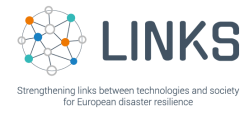
Silvia Parisi and Antonio Opromolla, Link Campus University
With the achievement of the first results of the project, many dissemination and communication activities have been carried out in the last six months of the LINKS project. These include participation and organisation of events and workshops and the strengthening of existing and new networks.
To disseminate the results of the project and to publicize planned activities, LINKS project participates in various events and initiatives.
PAST EVENTS
In February 2021, LINKS took part to the DRS01 conference, a joint event for the Horizon 2020 DRS01 Cluster (Disaster-Resilient Societies Cluster), to enable the four DRS01 projects RESILOC, BUILDERS, ENGAGE and LINKS, funded under the same European call, to cooperate, collaborate and coordinate, in order to support and enhance synergies across their strategic objectives, pave the way to future collaborations and jointly contribute to the buildup to the ultimate goals of the Framework programme. LINKS will carry on taking part in the activities of the DRS01 Cluster in the near future: focus groups will be established to address topics such as standardisation & ethics, policy recommendations, community volunteering, and vulnerability, and joint DRS01 Cluster events and conferences are in the pipeline.
Another crucial event was the Secure Societies event (P2PKOS) held online on 22 – 23 March 2021. LINKS participated in a session dedicated to communication, dissemination and exploitation during which services and tools recently developed by the European Commission and Directorate General Research and Innovation were presented (such as the Horizon Results Platform and the Horizon Booster Services). The event also facilitated dialogue among different projects under the Horzion framework and relevant DGs (e.g. DG HOME, DG ECHO, DG CONNECT), to discuss where and how the targeted policy areas of the different projects aligned with each other, and the policy objectives of the Commissions. The event led to new connects and potential collaborations across sectors dealing with similar topics as LINKS (e.g. misinformation and disinformation) such as the STAMINA project.
The LINKS project also took part to two events organized by the CERIS – Community for European Research and Innovation for Security. The community provides a platform to share information across Member States and brings together the latest policy and research developments in an easily accessible format. It also ensures effective coordination and interaction, which are essential between the various stakeholders involved in the crisis management community, ranging from policymakers, research, industry and practitioners in the EU Member States, facilitated by targeted research projects commissioned by the EU. These projects aim to produce innovative research outcomes in terms of technologies, training and network building. The first event LINKS participated in was held in February and featured presentations by the DRS01 Cluster with a focus on societal resilience. The second event took place in March where LINKS and other projects discussed how scientific outputs from individual projects will support to the Sendai Framework for Disaster Risk Reduction.
At the beginning of April, the “Link Campus for LINKS” meeting took place: some students of the master’s degree in Digital Communication and Economy of the Link Campus University discussed the results of their project works of the Digital Transformation course with the #LINKSH2020 partners. The objective of the project work was to identify how digital transformation related processes can improve specific conditions of the LINKS disaster case scenarios and what emerged highlighted two elements. On the one hand, the importance of a human-centered approach to disasters. This means, among other things: actively involving the diversity of stakeholders of specific scenarios, focusing on the role of a top-down information to change people’s behaviours, and focusing on the need of different processes and technologies in different phases (before, during, and after a disaster). On the other hand, the importance of social media and crowdsourcing technologies in these processes was emphasized, that can also be combined with other technologies (for example: Internet of Things, Artificial Intelligence, and Big Data).
On April 28, LINKS colleagues from the University of Florence chaired a session on the role of social media and crowdsourcing in disaster risk management and resilience at EGU2021, within the panel “Climate extremes, biosphere and society: impacts, cascades, feedbacks, and resilience”. Then, LINKS took part to the ESRI Italia event (Conferenza Esri Italia Digital Week) on May 14, during the session “Solutions of the risk management” (in Italian: “Soluzioni per la gestione del rischio e delle emergenze”): users’ best practices on risks linked to natural and anthropic phenomena were discussed. Topics such as waste, hydrogeological risk, industrial risk, seismic risk, fires, and emergency management were covered. LINKS participated with a talk entitled “H2020 LINKS project: the use of Social Media and Crowdsourcing platforms in disaster situations”. An additional internal seminar with some of the participants has been organised in order to have an open discussion among the participants on how their work ties into some of LINKS research topics.
In April LINKS presented at the regional meeting of associated partner, the Disaster Preparedness and Prevention Initiative for South Eastern Europe (DPPI SEE). LINKS also hosted a Policy-to-Practice workshop together with DPPI SEE following the regional meeting. The workshops was staged around to hypothetical crisis scenarios (flooding and earthquakes), and allowed 16 participants from 9 countries in the Balkan region to discuss approaches to using social media and crowdsourcing for disaster management, based on their own expectations and experiences.
On 22 May, LINKS took part in the Accessibility Days, an event to raise awareness accessibility and disabilities. LINKS presented its first results in the section “Vulnerability and Risk Perception in Disaster Situation” (in Italian: Vulnerabilità e Percezione del rishio in situazioni di disastro), giving particular importance to the concepts of vulnerability and risk perception, considered respectively as a condition that is acquired over time (and which a disaster can accentuate) and as the ways in which risk is acquired and perceived in disaster conditions.
Last but not least, LINKS also took also part in the ISCRAM (Information Systems for Crisis Response And Management) 2021 Conference in late May with a paper entitled “A Consolidated Understanding of Disaster Community Technologies” written by our partners at the Safety Innovation Center, and a poster entitled “Strengthening Disaster Resilience Through Social Media and Crowdsourcing”. The event provided the opportunity for researchers and practitioners from across the world to meet and share their expertise in the design, development, and implementation of information systems that are focused on improving the management of crises and disaster situations.
UPCOMING EVENTS
LINKS will participate to the EUGEO 2021 event at the end of June with a paper entitled: The role of children and young people in digital activisms for community resilience: some educational perspectives, Bonati S., Puttilli M.
Moreover, the LINKS partners have started internal discussions to plan and organize a conference at the end of the first year of the project. It will be held on July, 2. The main objectives are to present the main results achieved in the first year of the project to the interested stakeholders. It will be an open conference, but registration will still be required. Here you can find the agenda of the conference and the link for registration.
NETWORKS
LINKS is part of:
1) European Commission Disaster Risk Management Knowledge Centre (DRMKC), a center which integrates existing scientific multi-disciplinary knowledge and co-develops innovative solutions for existing needs. The activities of the center support the translation of complex scientific data and analyses into usable information and provides science-based advice for disaster risk management policies. In this platform the main results and information of the LINKS project can be found.
2) Resilience Research Group, which supports both quantitative and qualitative research, with an emphasis on mixed methods designs that favor understanding resilience as a culturally and contextually embedded construct and views resilience from a socio-ecological approach.

